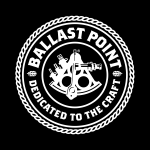Reg Whately
TCSD Conversation by Craig Zelent
I had the pleasure recently of talking triathlon with TCSD member Reg Whatley who will represent us in the Rio Olympic Games. Reg has paid his dues and been selected to be a Technical Official for men’s triathlon on August 18 and the women’s triathlon on August 20. Reg is a 5x cancer survivor with a great perspective on life. I know you will enjoy getting to know Reg.

"Reg Whatley taking a short time out in the Technical Officials Lounge Chicago 2015 WTS Grand Final"
Craig: What sports did you play when you were growing up?
Reg: Well let me preface by saying, I am a Military Brat, meaning we lived 2 years everywhere. The privilege and experience living in so many different cultures allowed me to gain tolerance of all living things. This being said, my early years were throughout Europe so Football (Soccer only in the US) was what we played on the schoolyard, in the backyard, in the streets, the parks and anywhere we could. Since we were stationed near Munich, of course FC Bayern Munched was my favorite. I recall my first bicycle at age 5. It was a red Bianchi decked with Campi everything, of course. Sports are always a great manner to cooperate and to gain new friends, wouldn’t you say? I gained a respect for deep water as a youngster when my dad tossed me in the deep end of any Olympic pool and apparently, I passed his test, I made it to the surface and ‘swam’ to the wall. Swimming has always been my passion and especially in open water, you don’t have to flip turn incessantly. The open water swimming was further expanded when we were stationed in Hawaii, where the North Shore of Oahu was quite close and always provided some of the best and largest waves in the world. Since my High School was quite close to the north shore, you could tell when the swell was up, there were a lot of truants. Suffice to say, the tie-in to Triathlons had a fairly good foundation.
Craig: What was your first triathlon like?
Reg: My first tri was in Hawaii, early 1980’s more of a informal challenge rather than a sanctioned-organized event. Many of us heard of the long distance challenge (first Ironman) a few years earlier, but none of us were up to the distance, especially around Oahu, it didn’t seem sane at the time. There were probably 30+ of us, who swam into the 10’ surf, past the jetty at Haleiwa and some were fortunate to catch a wave and body surf in. I suppose the distance was a kilometer, give or take. For T1 there were no racks, just a collection of bikes laying down or propped up on shrubs or leaning on trees. We got on the frontage road near Kam Highway, only because we shared the 2 lane road with local and tourist traffic, there were no bike lanes and the loop turnaround was risky as it was, look both ways and make illegal u-turn. It was about 30K out and back and again back to the beach to take time to put on your running shoes, maybe eat a sandwich or I think the energy bars were like Hershey bars or Snickers. Then those who wanted to run the couple kilometers in to town and back, did it, the others hung around to trash talk or encourage the others. This was more of a personal challenge for me, as I was only a few months in to a new challenge in my life and I was beginning to understand what “Limitless,” meant.
Craig: You have been a part of triathlons all over the world. I believe I have shaken your hand in at least 5 different countries. What have been some of your favorite destination races?
Reg: I do recall seeing you everywhere Craig, so to you, I bow my head and compliment you. That’s a great question, as there have been literally hundreds and I’ve been extremely lucky to be part of so many international events, it only helps to share the take-aways so that other Event Organizers and Technical Officials can build their respective events to a greater customer experience. These are not in order, but there were the CISM (World Military Triathlon Championships) in Lausanne, where transition was just in front of the grounds of the IOC Museum. Because of my background being around the military for so many years, I have the greatest amount of respect for regimentation and respect and the Motto of CISM, “Friendship Through Sport,” really validates the underlying fact, that even most of the teams are Military first and athletes second, the passion and comradery that competitors from all over the world have, is because the lines are only on the maps. My first time in Rio was 2011 for the World Military Games, only second in attendance to the actual Olympics and the venue where our event this year, is precisely the same as it was five years ago, Copa Cabana Beach. The course this year is more challenging and technical, but what a background for our sport. Another of my favorites is Yokohama; there is something to be said about this legacy event and the venue setting is absolutely picturesque. This is also challenging in the logistics as the bike and run course share the same roads, which happen to be main thoroughfares for the locals and their businesses. I very much enjoyed the daily challenge of all the ITU Grand Finals that I’ve been fortunate to be a part of from Auckland, London, Edmonton, Chicago and this year to be in Cozumel and yet there are many, too many in the international theater to mention here. For a long day of challenge brought to you by Madam Pele, and all that it represents in long course, it’s the big Kahuna Ironman World Championships in Kona. I’ve officiated there many, many years and know that course like the back of my hand, many good and some not as good memories. The O’hana of the locals, personified by Sharron Ackles, I do miss Sharron, she was the epitome of the Aloha spirit.
Craig: You, like many people in our society, struggled with chemical dependency. When did that start for you and what do you attribute as to the cause?
Reg: This is an inherited disease that is misunderstood and sometimes mistreated, and yes it is, a daily struggle for many. My background being earlier shared, the Military, and those who have experienced war has it’s way of forcing one to escape, escape their memories, their experiences and the demons that might reside in ones’ head. I learned and inherited my escape by watching how my parents dealt with their demons. At the time we were in Europe my father had already experienced two wars, and while we had not yet come upon his third war, no doubt he carried a lot of pain. My mom, a victim and survivor of WWII, and being from Lithuania, saw and experienced more than any human, not alone, a child. She witnessed the execution of both her father and her older brother at the hands of soldiers. My beginning was after being subjected to horrific abuse as a child, and in order for me to deal with it, I began to drink at age 8. Abuse was never something a child was supposed to experience, so where do you go to share or seek help? This was 1957 and abuse was not even a subject that was readily researched. There were memories in a child’s mind that made it difficult for me to understand, they were painful and having a few sips of my parents Vodka, put them in the background for the moment only. They never really went away, and I had no idea how to reach out for help, who do you go to? What do I do? On January 25th, 1981 I began my journey.
Craig: Congratulations on being sober for these past 35 years. How did this come to be and what has enabled your sobriety to continue?
Reg: Thanks Craig, the sobriety is a gift of life to me from me. For me, each day is a gift and for me, it’s a joy to wake up and realize I can do anything, I am limitless.
While I experimented with the recreational chemicals of the sixties, I was recruited in to Rock and Roll in the late sixties and my career as a substance abuser now had a profession to support it. Only issue being, in Rock and Roll, everything was readily available and it was free. When I share, Rock and Roll, it was the big time, acts like Jimi, Elton, Leon, Billy Preston, Kris Kristofferson, Rita Coolidge, Steppenwolf, the Stones and so many, the problem was, it came at a price. Over the more than 11 years that I toured with these bands, we, the world, lost 8 very close friend/musicians and yet I continued to ignore that, I too, could be on the bathroom floor or lying still in my hotel room. The signs were all there, but I scoffed at the friends who pleaded with me to change, I refused to believe I had a “problem.” Not me, I was invincible, or at least when I got buzzed, I thought I was.
Yes, all the stories that you may have heard about being around entertainment, especially Rock and Roll in the Sixties and Seventies are true and then some.
Craig: You are a 5x cancer survivor. That is amazing! 2 battles with skin cancer, 2 more battles with your vocal cords and 1 battle with your liver. Do you know the cause?
Reg: Yep, in retrospect, the need to take care of your body, your health both physically, mentally and emotionally is a requirement, even at an early stage. I suppose the information wasn’t available during that era, or I simply ignored it. Did I already share, that I thought I was invincible? I really learned that I am limitless in the positive. Had I not began my journey of sobriety I have no doubt I wouldn’t have survived to be diagnosed with my first bout with skin cancer; no surfers on the north shore back in the sixties wore sun screen and zinc oxide got slippery but the key in any and all of the battles, is prevention and early detection. In each instance, my body was telling me, something wasn’t normal, something wasn’t working optimally. In every instance I listened to my body and sought help and in each case, they were a stage one, early enough to strive for success. Triathletes and for that matter any person should become aware and understand what their body is communicating and when a flag goes up, seek consul, seek an expert’s advice, perhaps even more than one if you are completely informed to your satisfaction. All five of my battles, I can comfortably state, were a direct result of abusing my body, whether through prolonged exposure to the elements or prolonged consumption of chemicals.
Craig: What have you learned about yourself through each of these battles with cancer?
Reg: Not only have I been fortunate to live a life around the world, experience many cultures, many people, many languages and have the opportunity to try new things and continue to live two lives, one of fortunate opportunity and another of a dark side dealing with my internal demons. There is one very underlying lesson that I’ve gained, especially during the years of sobriety; “When we gain strength, courage and wisdom, it becomes our responsibility as human beings, to share this experience in hope that one other might benefit.” It’s all about giving back, in any and every way that you are able. Whether it’s a smile when another person is down, or a hug, or better yet, offering yourself and experience as a volunteer in any facet of life, where you can make a difference, no matter how little or small it seems to you, it’s volumes for another.
During my 13 months of chemo with my last battle, some 14 years ago, I had no guarantees that tomorrow would ever come. No doctor would give me anything better than a 50/50. For me, waking up in the morning was an absolute joy, and even though the chemo kicked my ass big time, I was only dealing with the next moment, the next minute, the next hour. The same manner in which I deal with my chemical abuse, was a great segue into dealing with cancer, a day at a time. The goals no matter big or small are never insurmountable, when you deal with them on a daily basis. Put it in to perspective, same goes for your race goals, deal with them in pieces and the combination on race day comes together. The ability to run through the finish line rather than to the finish line becomes a practice, performed during a training session, or at an event, or during your work, your play or any facet of human behavior.
Craig: Besides triathlon, where do you volunteer your time?
Reg: I find it necessary to give back, not just for the joy you may bring others, but the absolute confirmation of human kind and gratification you achieve for yourself. For some reason, I vibe very well with all living beings, so when I can, I volunteer at the Animal Shelter. Our county has shelters all over, some larger than others, some that specialize to a degree. The Escondido shelter, for instance, has the largest population of American Pit-bull, often they are abandoned, mistreated, wrongfully trained to act out some whacked out human beings twisted sense of violence, vicariously. My son and I would go to this one regularly to share some positive vibes with all the dogs, many of the pit-bulls were our favorites.
I’ve also volunteered at the Carlsbad Triathlon, mostly because it’s right in my front yard, in fact transition is definitely my front yard and it’s always a great event to give back. I am a regular volunteer at many of City of Carlsbad events, again, the joy you may bring another is priceless.
Craig: How did you get involved in officiating triathlons?
Reg: The benefits of our sport and the healthy lifestyle it offers was a natural progression for me, when I was sidelined with one of my cancer battles. It was difficult to train or compete and yet still I had this need to give back. I recall volunteering at Fiesta del Sol Triathlon in Encinitas in ‘95 shortly after my vocal cord surgery. I was placed in transition and got this idea that I could give back subliminally, a natural area was officiating. Inspired by Gurujan Dourson, and just as Tri Fed was transitioning to USAT, I became certified and gave back as much as I was able. 1996 was the first year I did both USAT and ITU style event officiating.
Craig: In regards to officiating, what have been some of the bigger changes you have seen in the past 20 years?
Reg: There has been an evolution of our sport and as a result, an evolution of compliance i.e. Competitive Rules. This typically occurs as athletes become either more competitive or some begin to find areas where they believe the written rule doesn’t apply to their behavior. Where I’ve seen the biggest positive move, is the level of education of our officiating programs. Of course, educating the customer is a great proactive manner in which to avoid confusion or infraction of the Competitive Rules. I would like to believe, through the education of our officiating programs both USAT and ITU, there is a certain expectation that a competitor can experience consistency, a consistency of compliance. Where I observe the largest pushback, is when an athlete will contest a technical specification of their equipment, stating, “Well I was in XXXXX last week and they allowed it.” The appropriate response is to advise the competitor of the specification and how it’s being applied to the current event they are registered to compete.
Whereas there are different types of multi sport, the rules have become more aligned between National and International Federations.
Craig:What things did you need to accomplish to qualify and be selected to be a Triathlon Technical Official for the Olympic Games in Rio?
Reg: This was a surprise and never a goal of mine. The process of selection has evolved over the course of this now being the fifth Olympics for triathlon. Prior to Rio, there was a more informal approach, more than a formal qualification and certification process that is now in place. I made the long list, then the short list for London 2012, but for some reason, even though USAT has the largest membership in any Federation in the world, the choice was to select only one individual. Many of the attendees at London had already been in attendance for the prior three, making it difficult for any new Technical Official to aspire to be selected, if it was a goal for them.
For Rio, our Federation has a point system based upon level of event i.e. International, Continental, National, Regional as well as a multiplier corresponding with the level of the official’s assignment and certainly the actual Level of the Technical Official. This would be ITO or International Technical Official or Level 3, CTO or Continental Technical Official or Level 2 and NTO National Technical Official or Level 1.
Each Federation had to nominate to the International Federation, a couple of nominees for either the Olympics or the Inaugural Para-Triathlon at 2016 Rio Para-Olympics. This list was then reviewed and voted from all the National Federations in the World, with selection of proposed candidates approved by the Technical Committee, then this list was further reviewed and approved by the Sport Department and finally certified and approved by the Executive Board of the International Federation. This scrutiny is what humbles me, as I have a sense of accomplishment and contributions that have been recognized by my peers all over the world. I am very humbled and honored to represent TCSD, USAT, ITU and all the Technical Officials who have any aspirations of achievement at any level of event or competition. Again, it’s all about “Sharing experience in hopes one other might benefit.”
Craig: What does it mean to you to be on the Olympic stage?
Reg: I’m not sure what it means today, but I am focused on accomplishing small goals each day, by approaching each of the events that I participate in as if it were “Their Olympics,” with consistency and compliance. We were recently Officiating at the WTS Yokohama and I was asked to train local NTO’s from Japan Triathlon Union for Swim Exit Handlers that would volunteer for the Para-Triathlon event held the same day. Although language was not a barrier, we approached our task as if this was in preparation for Tokyo 2020. This was our mantra, “Tokyo 2020, Tokyo 2020,” and the team had a phenomenal spirit, energy and zest and succeeded in a great event for the para’s. We were all proud of each others’ accomplishment in the training and the team unity during the event. They are a great team and many friendships have been forged through these efforts.
Craig: What are your future triathlon goals beyond Rio?
Reg: Giving back, what else Craig, giving back.
I believe there may be some sprints to participate, I no longer compete, but I do enjoy the small and fun stuff, similar to the first one back in Hawaii.
Craig: Reg, thank you so much for sharing your story. We hope your Rio experience is everything you ever dreamed of. Good luck in Rio and beyond!
Craig Zelent is a USA Triathlon Level 1 Certified Coach. Craig can be reached at 760-214-0055 or tricraigz@yahoo.com.








